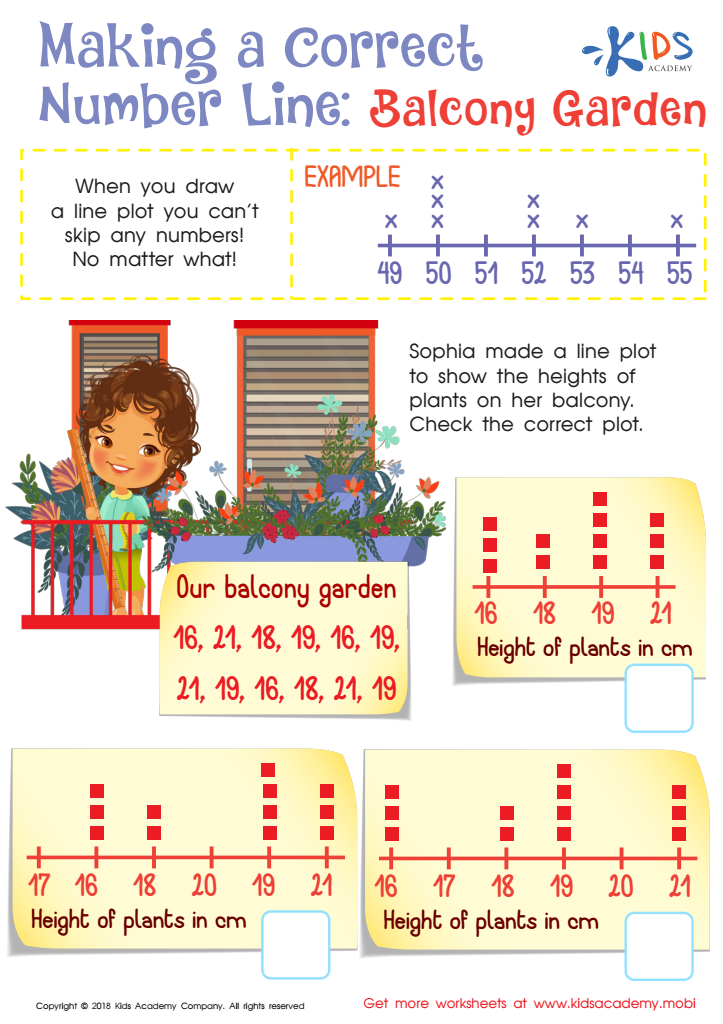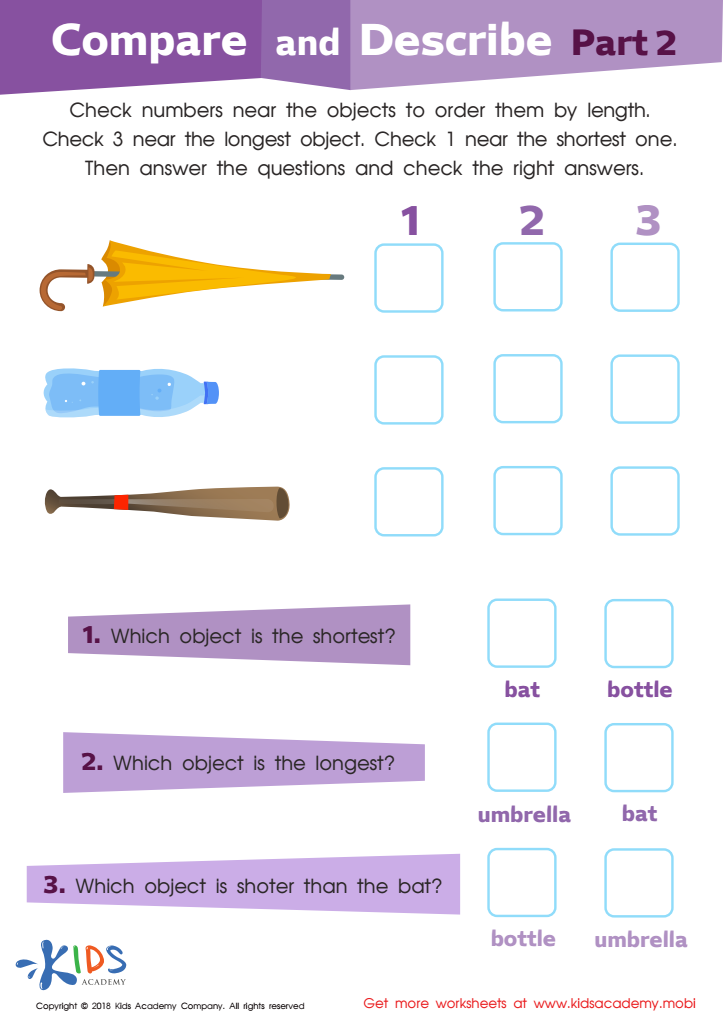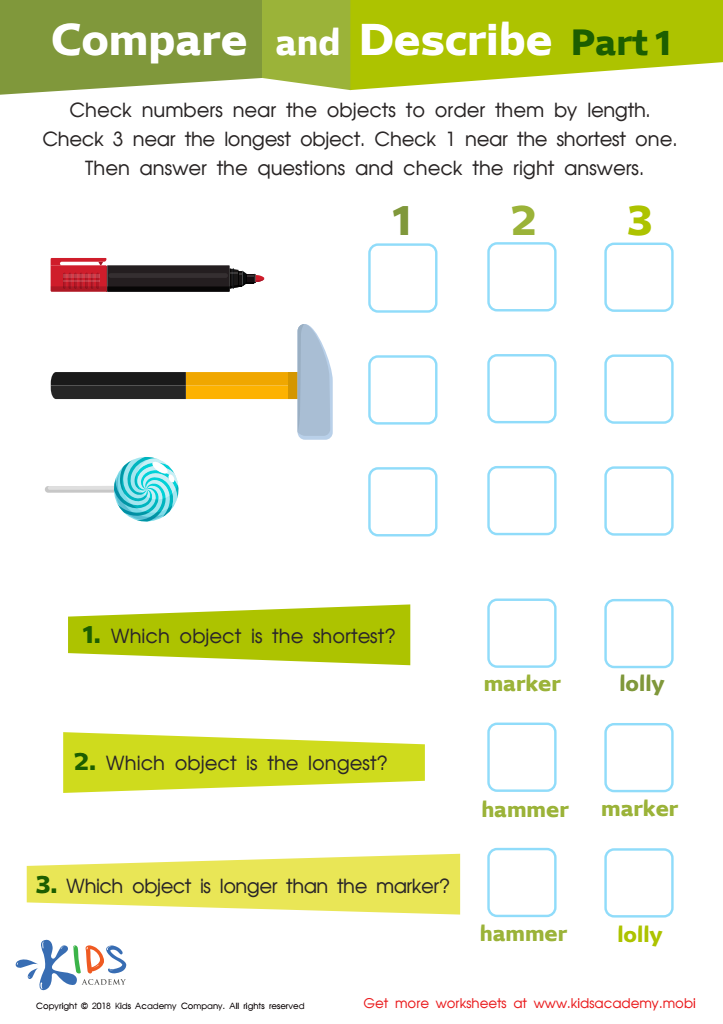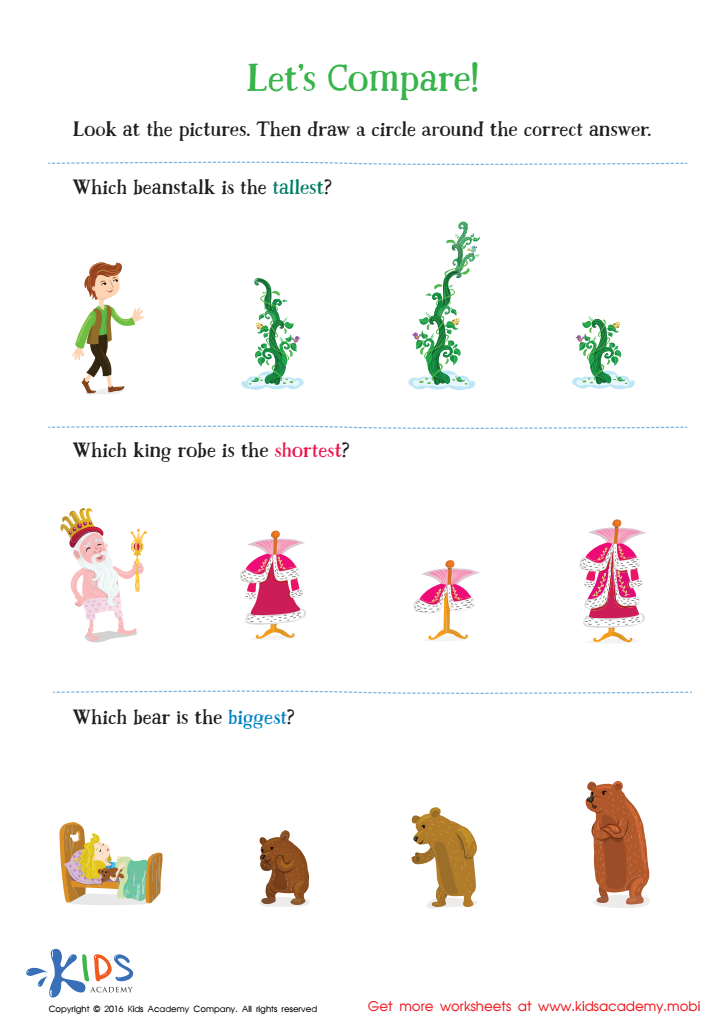Vocabulary enhancement Measurement Worksheets for Ages 4-8
4 filtered results
-
From - To
Enhance your child's vocabulary with our engaging Vocabulary Enhancement Measurement Worksheets designed for ages 4-8! These worksheets provide interactive and fun activities that help young learners expand their language skills while exploring measurement concepts. With a focus on age-appropriate vocabulary, your child will learn essential words related to measurements, fostering both comprehension and expression. Ideal for classroom or home use, these printable resources support early literacy and cognitive development. Encourage a love for learning and boost confidence in vocabulary usage with our thoughtfully crafted worksheets. Explore and discover the joy of words through measurement activities today!


Making a Correct Number Line: Balcony Garden Worksheet


Compare and Describe: Part 2 Worksheet


Compare and Describe: Part 1 Worksheet


Fairy Tale Worksheet: Let's Compare
Vocabulary enhancement measurement for ages 4-8 is crucial for parents and teachers because it lays the foundation for a child's literacy development and overall academic success. During these formative years, children expand their language skills at an astonishing rate, and a rich vocabulary significantly impacts their reading comprehension and writing abilities. By measuring vocabulary growth, educators can identify areas where a child may need more support, ensuring that interventions are timely and effective.
Additionally, strong vocabulary knowledge enhances children's ability to communicate, express their ideas, and engage with others. This fosters social skills and confidence, enabling children to participate actively in conversations and classroom discussions. Monitoring vocabulary also promotes cognitive development; as children learn new words, they acquire knowledge about the world around them, which broadens their worldview.
Furthermore, early vocabulary interventions can reduce future literacy challenges. A well-rounded vocabulary is essential not only for academic achievement but also for lifelong learning and success. By focusing on vocabulary enhancement, parents and teachers can nurture a love for language and learning, setting the stage for educational engagement that extends well beyond the early years. Overall, investing in vocabulary measurement is an investment in a child's future potential.
 Assign to My Students
Assign to My Students




















